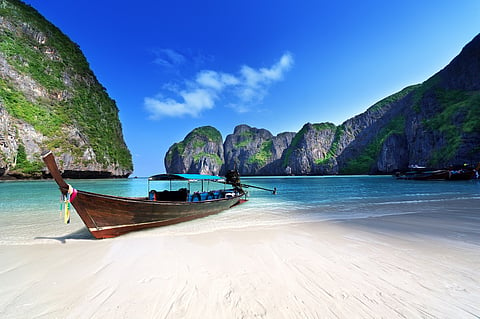
- Destinations
- Experiences
- Stay
- What's new
- Editor’s Picks
- Responsible Tourism
- CampaignsCampaigns
- Subscribe

Taking lessons from the lockdown which resulted in a cleaner environment, Thailand plans to shut its national parks for several months every year in order to reduce environmental damage at popular tourist spots. The country&rsquos environment minister stated the same, after studying the positive effects of the lockdown on the environment.
The closure of the parks during the pandemic allowed natural habitats to recover from the pollution and other issues which were the result of tourist crowds. A return of wildlife, like whales and turtles, to Thailand&rsquos world-famous beaches, was a major indicator of the same according to Natural Resources & Environment Minister Varawut Silpa-archa. Taking notice, the authorities now want to close the parks annually for two to four months at a time, to keep the recovery going.
&ldquoThis is so that nature can rehabilitate itself and the park rangers can improve the parks,&rdquo Varawut said in Bangkok.
Thailand has more than 100 national parks, covering mountain regions in the north to tropical islands in the south and contains popular attractions like Phi Phi Islands and Phang Nga Bay. In 2019, more than 20 million people visited Thai national parks and contributed $70 million as park fees, according to records. Tourism is a key part of Thailand&rsquos economy, contributing about one-fifth to gross domestic product but the government predicts the number of visitors will plummet to less than 7 million this year due to pandemic. However, less crowds will help the environment.
According to Varawut, Phi Phi Islands&rsquo Maya Bay will remain closed until the area fully recovers from the damage caused by tourism last year. He also pointed out that the bay&rsquos coral reefs could take up to 40 years to return. Thailand had remained closed to most foreigners since March, but the government considering reopening the country for some travellers to support its ailing tourism industry.
